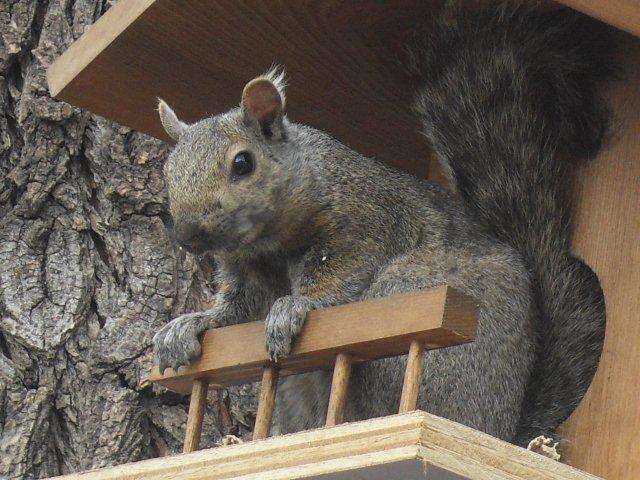 |
| Rose Kelleher |
"Yup. All good points. But. I think the current state of things is in some ways a necessary reaction to the old state of things. Sometimes you have to tear down before you can rebuild. The old system was deeply flawed, and worse, it was believed to be purely merit-based, which was an insult to all who couldn't succeed in it. Race, class and gender were much bigger factors than most people realize(d). The arbiters who decided whose work was worth reading/teaching/preserving for posterity were nearly always rich, white, and male. They made stars of a handful of people, based on their own highly subjective criteria, and everyone else was screwed. Now there are no stars. This bothers some people. It doesn't bother the ones who know for a certainty that they would never have been selected for stardom under the old system."
There is no question that white males have dominated the ranks of both the choosers and chosen (i.e. publishers and poets). The first part of the 20th century did see Emily Pauline Johnson (1861-1913), Sara Teasdale (1884-1933), and Edna St. Vincent Millay (1892-1950) but the focus was on Robert Service and, later, T.S. Eliot.
In the middle of the century Elizabeth Bishop (1911-1979), Anne Sexton (1928-1974), and Sylvia Plath (1932-1963) received less attention than Robert Frost and, later, Allen Ginsberg.
The latter part of the 20th century brought with it a final indignity, as the works of Gwendolyn Brooks (1917-2000), Maya Angelou (1928-2014), Margaret Atwood (1939-) were obscured by the successes of Dr. Seuss and the cringeworthy Charles Bukowski.
 |
| A.E. Stallings |
Magazines are compartmentalized by subscribership; e-zines can be read by anyone. Largely due to [taxpayer?] funding, magazines tend to be regional/national in scope; webzines are often international. We can't create a Facebook link to a poem in a print periodical. Convenience is not the Internet's only advantage. There is greater economy, availability and expertise. Most geeks are onliners: Usenetters, PFFAers, Gazebans or Eratosphereans. Why pay for the poetry or opinions of those who don't know whether "Prufrock" and "The Red Wheelbarrow" are metrical or free verse when more informed writing is free?
Thus, the Internet has reversed the flight from quality we've seen since music supplanted poetry in the 1920s. The print world continues to focus on personalities while e-poets create something we haven't seen in half a century: iconic verse. All Newsgroupers--which is to say all poets online before the 1990s--know the rest of this poem:
Missing you again,
I embrace shallow graves.
What web poet doesn't recognize the following lines?
say
you pass from here to there, with your marigold
eyes, the garden darker for lack of one golden flower,
would bees mourn, would crickets keen, drawing long
blue chords on their thighs like cellists?
 |
| Margaret Ann Griffiths |
True, most of these advances have been all too recent. Parenthetically, I wouldn't tie these gains to the death of poetry's audience, which happened 3 to 7 decades earlier. Still, it is a fascinating hypothesis that the loss of readership served as some sort of cocoon, under the cover of which a structural metamorphosis occurred, bringing new dimensions in color, equality, access and harmony.
Now there are no stars.
 |
| Derek Walcott |
There isn't even a sky.
Nevertheless, stars may be the perfect analogy. It takes many years for their light to reach us. We could hope that the four great poets of today, none of whom are white males, might be noticed at some point in the future. Otherwise, canonical historians will have a 50-year gap in their poetry timelines.
Color me skeptical, though.
This bothers some people.
Democracy usually does.
Footnotes:
¹ - To wit, the majority of ezine editors may still be white and male but they're rarely wealthy. I perceived no reluctance whatsoever in John Amen of the Pedestal, Michael Burch of TheHyperTexts.com or the late Paul Stevens of SCR to publish works regardless of any extraneous factors (including politics, in the case of Stevens, at least).
 |
| Hedy Lamarr |
² - Did you know that WWII U.S. Army artillery trajectory charts--far superior to any other nation's--were designed by a group of female mathematicians? That the Principle of Restricted Choice was discovered by a female mathematician in India half a century before computers could confirm it? That a female cryptographer cracked the Imperial Japanese JN-25 Naval code, leading directly to the first major U.S. victory at Midway Island? That Hollywood actress Hedy Lamarr, with the help of composer George Antheil, invented frequency-hopping for unjammable WWII radio-controlled torpedoes--technology that is found today in your cell phone, GPS and WIFI? That the U.S. Navy rejected this discovery until it was "re-invented" by [male] scientists in the 1960s?
Your feedback is appreciated!
Please take a moment to comment or ask questions below or, failing that, mark the post as "funny", "interesting", "silly" or "dull". Also, feel free to expand this conversation by linking to it on Twitter or Facebook. Please let us know if you've included us on your blogroll so that we can reciprocate.
If you would like to contact us confidentially or blog here as "Gray for a Day" please use the box below, marking your post as "Private" and including your email address; the moderator will bring your post to our attention and prevent it from appearing publicly.
We look forward to hearing from you.
Signed,
Earl Gray, Esquirrel

No comments:
Post a Comment
Your comments and questions are welcome.